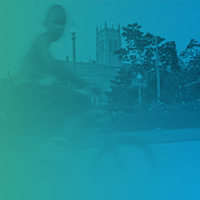-
Grants
7
-
Total Awarded
$4,761,500
-
Years
1995 - 2022
-
Categories
Grants
In providing a distinctive and distinguished learning environment for its students, Columbia University (Columbia) seeks to link its teaching, research, and scholarship to the metropolitan and global resources and issues of New York City. The award provides support to Columbia’s Justice Lab to facilitate, accelerate, and amplify a national conversation about how to reimagine justice and reconsider the response to violence, economic injustice, and systemic racism in the United States. Under the auspices of the Square One Project, the central question that grounds the Justice Lab’s work is: how would justice policy be different if the traditional responses to crime and public safety that involve law enforcement and incarceration were set aside? The Justice Lab’s activities engage a cross-sector of community members, local government representatives, and academics on local and national platforms in convenings and a coordinated communications campaign to facilitate relationships and networks; identify and generate “square one” ideas; and implement transformational solutions to promote community health and well-being.
In providing a distinctive and distinguished learning environment for its students, Columbia University (Columbia) seeks to link its teaching, research, and scholarship to the metropolitan and global resources and issues of New York City. The award provides support to Columbia’s Justice Lab to facilitate, accelerate, and amplify a national conversation about how to reimagine justice and reconsider the response to violence, economic injustice, and systemic racism in the United States. Under the auspices of the Square One Project, the central question that grounds the Justice Lab’s work is: how would justice policy be different if the traditional responses to crime and public safety that involve law enforcement and incarceration were set aside? The Justice Lab’s activities engage a cross-sector of community members, local government representatives, and academics on local and national platforms in convenings and a coordinated communications campaign to facilitate relationships and networks; identify and generate “square one” ideas; and implement transformational solutions to promote community health and well-being.
In providing a distinctive and distinguished learning environment for its students, Columbia University (Columbia) seeks to link its teaching, research and scholarship to the metropolitan and global resources and issues of New York City. The award supports Columbia to bring together leading practitioners and researchers for an Executive Session (Session) on the Future of Justice Policy. The Session agenda focuses on the development of a new framework for responding to crime and social disorder at the front-end of the justice system that is more effective, racially just, and supportive of communities. In addition to its regular meetings, the Session activities include producing a series of issue papers and policy briefs and a communications campaign to foster a national conversation on systems reform that prioritizes safety and justice for individuals and communities.
In support of an ethnographic study of 400 families relocated from Chicago’s Robert Taylor Homes public housing development (over four years).
To support ethnographic research on the dispersion and experiences of public housing residents using Section 8 vouchers and on the experiences of landlords and service providers working with residents (over two years).
To support an ethnographic study of communities and at-risk youth in three Chicago neighborhoods.
To support the project The Training of Russian Provincial Social Scientists and the Study of Russian Policy Dilemmas (over two years).






